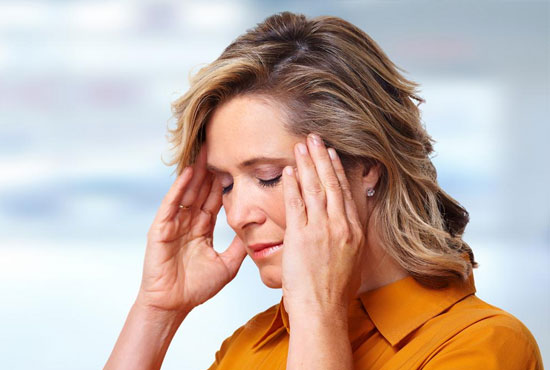Elderly patients have multiple reasons for losing their balance. Muscles are weaker, spines start to twist, bones may become brittle. Add vascular problems, vision loss, polypharmacy, and a sedentary lifestyle, and it’s no wonder that complaints of vertigo or dizziness affect some 70% of individuals age 65 or older.
Doctors report that people over sixty-five years of age often complain of difficulty in balancing; they feel unsteady at times. It’s not unusual for people even to fall and that can lead tomuch more serious problems, even requiring stays in hospital because of broken bones and so on.
- SYMPTOMS OF DIZZINESS
These can vary. Some people complain of a sensation of spinning or vertigo. Some people feel light-headed, all the room spinning around or a feeling of floating rather than being steady on the ground; a feeling something like being on a ship or boat.
The practical problem is that these feelings can cause problems walking or they might bring on feeling sick or finding it hard to concentrate or depressed even. People can get afraid to move about and get out of the chair. And worst of all it makes it much more likely that they will fall and for all elderly people falling can be a dreadful experience and lead to serious injuries; depending on how bad the fall, of course, the injuries can be extremely serious.
- WHAT ARE THE CAUSES OF THIS DIZZINESS?
In many cases these symptoms are the result of some defect in the functioning of the inner ear. Sometimes the symptoms are due to some disorder in the nervous system of the body, which is responsible for balance and also the sense of where we are in the space around us.
Dizziness is feeling light-headed or not steady or feeling faint.
Vertigo is a feeling of being spinning round or feeling that’s things around us seems to be moving; they are stationary in reality.
Most people can feel occasionally unsteady or dizzy. Just seeing a movie showing a car or airplane whizzing through the mountains can make us feel dizzy or unsteady even though we are firmly seated.
Of course, there are other causes for lack of balance and dizziness. Car accidents, infections in the inner ear, diseases like Ménière’s disease, brain or nervous system conditions like Parkinson’s disease and even side effects from medication use. Older people often use medications more frequently and these side effects are, of course, then more likely to be felt by older people.
Feeling dizzy and unbalanced though is not necessarily simply part of getting older. There are specific conditions where there are diseases of the inner ear which can cause us to feel dizzy but in many cases the causes for many people lie in their poor posture and the reduction in their strength, movements and stability.
Physical therapists, like me, who have expertise in this lack of balance problems, can first of all assess your walking, standing, balance, movements and your risk for falling.
I will be able to probably find out the most likely reason why you are getting dizzy and may even visit you at home to look at what you have to do daily and what kind of situation you are in. Create a customize a treatment plan for you that will bear in mind your needs and your physical goals and your current level of activity. If appropriate I will recommend that you see a doctor if that looks to be needed.
- THE ROLE OF PHYSICAL THERAPIST IN MANAGING DIZZINES
Physical therapists are the practitioners of choice in the rehabilitation and management of vestibular-related balance disorders. A physical therapist specializing in vestibular rehabilitation will perform a thorough examination to
determine the cause of symptoms and devise a unique treatment plan to eliminate or minimize dizziness and its consequences. Additional goals of vestibular rehabilitation include reducing fall risk, screening for and correcting benign paroxysmal positional vertigo (often undetected in the elderly), stabilizing balance, retraining the proprioceptive system, improving gaze stability, gait training, and enabling optimal function.
Fortunately, aging does not adversely affect rehabilitation outcomes. Research demonstrates that vestibular rehabilitation is just as successful in remediating symptoms in the elderly as in a younger population
- SOLUTION
In most cases, there is a treatment option for your dizziness and lack of balance problems. This treatment is called Vestibular Rehabilitation Therapy (VRT).
VRT is a program based on exercise meant to encourage compensation in the nervous system of the effects of problems of the inner ear. Qualified physical therapists will first do a thorough evaluation of your medical history, balance, gait and any movements you commonly need to do to compensate for your balance problems.
I will then develop a treatment plan ‘tailor-made’ to your condition. This plan may include such things as specific head, body and eye exercises and these will be intended to retrain the brain to better process signals from the inner ear and coordinate these signals from the eyes and nerves in the bodily muscles. There will be home-based activities and exercises for you to do in addition.
Sometimes it all might seem to get worse before it gets better but in most cases balance improves over time and the symptoms disappear. Imagine headaches, fear, and tiredness all gone!
Even in cases where surgery is required, VRT will still be important because the brain will still need retraining and home-based exercises will still be needed.
If you need help with your dizziness and balance problems feel free to message me or call me at…
It’s my mission to make you feel better!
EXPERIENCE POWERFUL HEALING & PAIN RELIEF


